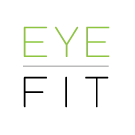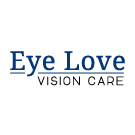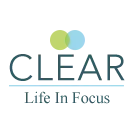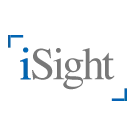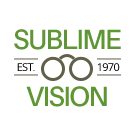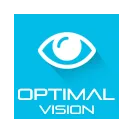
What is Vision Therapy?
Vision therapy is a specialized field of optometry which focuses on preventing poor visual functioning, enhancing visual performance, or rehabilitating visual dysfunction. Vision therapy sessions include the use of lenses, prisms, filters, specialized equipment and procedures designed to enhance the brain’s ability to control the visual acquisition skills needed to make visual perceptions that lead to an action of thought, motor coordination or communication.
Through customized activities both in the office and at home, the optometrist and patient work on visual skills such as the following:
- Eye tracking – the ability of the eyes to follow a moving target such as in sports or to reposition the eyes as in reading
- Eye teaming – the ability to control the two eyes together so you don’t see double or feel like vision is unstable
- Depth perception – the ability to judge distances correctly and see in 3-dimensions
- Fixation – the ability to keep the eyes pointed at a particular target i.e. a word on a page
- Visual attention – the ability to maintain attention during periods of intense near work
- Eye focusing – the ability to change and maintain clarity
- Visual thinking – the ability to form concepts in your mind and see visual imagery
- Visual memory – the ability to retain visual information over time
- Visual-motor planning – the ability to think ahead visually before performing tasks
When necessary, vision therapy programs typically involve several in-office sessions throughout the week for a varying number of months, depending on diagnosis and complexity of the symptoms and need.
How long has Vision Therapy been around?
Vision therapy has been around for about 70+ years and is an ever expanding field of optometry.
Why haven't I heard of Vision Therapy before?
Because of the complexity of the visual system and its numerous neurological connections in the brain, only a small population of doctors have chosen to spend the extra time needed to learn this very specialized field of optometry. Less than 1% of all eye doctors and eye surgeons are Board Certified in this area of expertise.
Dr. Haleo has over 30 years of experience working with children and adults in this area of expertise. He is not only Board Certified but is a graduate of the Gessel Institute of Human Development for the school-aged child at Yale, New Haven, CT.
Is Vision Therapy the same everywhere?
No. Vision therapy is not performed the same in every office. Each practice has the freedom to administer treatment as they see fit. At the Vision Therapy Center of Charlotte, we employ the following principles in our design of each treatment plan:
All treatment is carefully designed on an individual basis by Dr. Haleo himself. Treatment may include a number of components including corrective or compensating lenses, prisms or filters. Treatment may also include a course of vision therapy prescribed to address issues discovered during your initial Evaluation and Consultation.
Patient Focused: When it comes to patient care here at the Vision Therapy Center of Charlotte, LLC. the doctor is continuously involved with the patient. Starting with the initial consultation and evaluation, and throughout each therapy session, Dr. Haleo works side-by-side with our patients. Many other practices employ therapists or other staff to conduct testing or design, formulate and administer therapy, with the doctor re-engaging with the patient every 6-8 weeks for progress visits. Dr. Haleo on the other hand, formulates each child’s treatment plan and is actively involved in the formulation and delivery of each therapy session.
Experience: Dr. Haleo has over 30 years of experience practicing vision therapy and has resources that allow patients to make long-lasting gains in less time than might be done elsewhere. That knowledge and years of experience which allows him to flexibly change a treatment plan at a moment’s notice to ensure significant progress at each visit, is what makes us achieve the results we set out to accomplish. He is Board Certified and Fellowship trained in Binocular Vision by College of Optometrists in Vision Development.
One-on-One Treatment: Our therapy sessions are one-to-one and individualized so that we can best allow the patient to develop new skills and catch any issues that may arise as we present new challenges to each patient. We do not employ a classroom type setting of therapy.
Can Vision Therapy help people with Learning Problems?
Yes! Vision therapy can be an important part of the overall treatment of a person’s learning problem. Vision and sensorimotor deficits can cause eyestrain, headaches, blurred or double vision, reading problems, and attention difficulties. Even intelligent, highly motivated people can be severely handicapped by these problems in the academic or work environment. Correcting these deficits allows affected people to benefit from academic remediation and to achieve their full potential in the classroom and workplace.
How long will I have to do Vision Therapy?
Recognize, like any medical procedure, treatment times can vary from patient to patient, even those with the same diagnosis. Should therapy be included as a part of your or your child’s treatment, the number of office visits required is dependent on several factors including the type of diagnosis; the severity of the diagnosis; the number of diagnoses; how long the individual has had the diagnosis, condition(s), symptoms and affected behaviors. Naturally, working towards desired outcomes and specific goals are an important factor when considering the help an individual may need.
Historically, 95% of our patients finish therapy on time. Typically, it is 50% less time than what peer review guidelines are for an individual diagnosis. That’s because, at the Vision Therapy Center of Charlotte, LLC. therapy is an individually prescribed program of care, formulated and designed by Dr. Haleo and not a vision therapist. More importantly, the doctor is involved in your child’s care at each visit.
How does vision affect learning?
The large majority of learning occurs through our vision not just our sight. Research has shown:
- 80% of all learning, and up to 90% of classroom learning, is visual
- 60% of children identified as having problems with reading, have vision deficits
- 25% of children (including those who see 20/20) have a vision problem significant enough to affect academic performance
- 65% of the pathways in the brain are related to the more than 20 visual abilities.
Research has shown that over 60% of children who struggle with reading and learning have undiagnosed vision problems contributing to their difficulties. These types of vision problems are often referred to as “Learning-Related Vision Problems.” Typically the main symptom that you will see when a child has a Learning-Related Vision Problem is poor attention with schoolwork or reading, and difficulty with comprehension and/or tracking. For school-age children, in particular, it is very important that vision problems be detected and treated. Untreated vision problems can cause great frustration and undue stress in what should otherwise be an exciting period of learning.
Optometric vision therapy does not treat learning disorders, but does treat vision problems that can cause attention and behavioral problems as well as many learning difficulties. These vision problems have often been misdiagnosed as ADD/ADHD or a variety of different learning disorders.
Why can't I do Vision Therapy at home?
Research has shown that for most conditions diagnosed by a doctor, home vision therapy is not as effective as in-office vision therapy. Furthermore, there is specialized equipment, not available to the public, that we use to aid the vision therapy activities we perform. Vision problems that need vision therapy need strict monitoring to avoid embedding poor visual habits or creating undue visual stress. Sometimes an in-office treatment program will be supplemented with prescribed activities to be done at home for reinforcement of newly learned skills.
At what age is too old for Lazy Eye (Amblyopia)?
New Scientific Research Contradicts Popular Beliefs and Mainstream Medical Practice Theories Regarding Age Limits for the Successful Treatment of Lazy Eye
Recent scientific research has disproven the long held belief that children and adults with lazy eye or amblyopia can’t be helped after age seven. Evidence-Based, Peer-reviewed, Scientific Research Shows that Amblyopia or Lazy Eye Can be Successfully Treated in Older Children and Adults by Susan R. Barry, Ph.D., professor of neurobiology in Biological Sciences at Mount Holyoke College and the author of Fixing My Gaze (June, 2009).
Vision Therapy offers much higher cure rates for turned eyes and/or lazy eye when compared to eye surgery, glasses, and/or patching, without therapy. The earlier the patient receives Vision Therapy the better, but our office successfully treats patients of all ages
Who works with my child in the therapy room? What qualifications do they have?
The short answer: Dr. Haleo does.
Dr. Haleo is directly and actively involved working with your child and your child’s care at each session. Only he formulates, designs, delivers, supervises and is responsible for all the therapy with each child, at each visit.
This is different than therapy delivered elsewhere which allows a “vision therapist” to direct and deliver vision care to a child with the doctor checking and re-evaluating the child only every 6-8 weeks. While vision therapists who may be educated and certified are helpful “to the cause”, they just don’t have the education, knowledge base or years of experience compared to a Physician delivering care. In our office, Dr. Haleo knows at each visit what’s going on with your child and can reprogram and reformulate therapy instantly, if it’s not working. He doesn’t want to wait 6-8 weeks to hear from a “certified vision therapist” that they don’t understand why the child is not progressing.
Therefore, we feel the treatment results and goals you seek for your child are better achieved this way with Dr. Haleo involved with the delivery of your child’s treatment. This has been Dr. Haleo’s philosophy for more than 30 years.
My child hates reading, but they see fine – how could this be a vision problem?
Children who have not fully developed their eye movement or eye aiming skills, will often start their work without issue, but after a short time reading or doing close work, they find it difficult to continue reading due to the amount of difficulty they have getting their eyes to work well together.
Children with Convergence Insufficiency will often look away from their work periodically to allow the eyes to rest, refocus and re-aim. It often seems as though they have a poor attention span or that they are lazy. If they have to listen to someone reading aloud, their interest is higher. They are often labeled “attention deficit” or “lazy” when they simply don’t have the necessary visual abilities to aim their eyes for sustained periods of time. We’ve helped lots of children with this previously undiagnosed vision problem.
The teachers have suggested that my child might have an attention or behavior problem - could that be vision related?
When vision problems are undetected, children almost always have trouble with reading and doing their schoolwork. They can often seem tired or fidget and show frustration in the classroom – symptoms that can lead to a misdiagnosis of ADD, ADHD, dyslexia or other learning disabilities. Often a child with a vision-related learning problem has excellent verbal skills, and seems to learn well by listening, causing parents and educators to think the child must be lazy, have ADD / ADHD, or is learning disabled.
Early diagnosis and treatment of children’s vision problems is a necessary component to school readiness and academic learning. Basic eye exams and school screenings administered as part of a “back-to school” physical are often not enough to catch these issues.
Vision therapy can be used to treat many of the vision problems that lead to academic challenges. Improving visual skills and visual perceptual abilities during therapy can often reduce or eliminate the challenges that are affecting the child’s academics.
How do I know if my child has a binocular vision problem affecting their schoolwork?
The easiest way is to fill out one of our Parent/Professional and Educators Checklist located in the Patient Forms section here. But some of the most common symptoms we see in children are underperformance with schoolwork; from writing, copying and reading problems to staying on task usually has a visual abilities component we can diagnose and treat.
How do I know if my child sees double when reading?
You may not know. But many children who struggle with reading, see words “swimming” or moving when trying to read for extended periods of time. It’s as if the double vision is fixed and then returns so quickly they hardly notice two images. Instead it appears as blurred or moving words. Convergence Insufficiency is a common condition where the ability to aim the eyes at the reading distance is not fully developed in a child and often is the cause of such symptoms. Fortunately, there is help for that. It starts with a comprehensive Consultation & Evaluation at the Vision Therapy Center of Charlotte, LLC.
How do I know if I have a binocular vision problem?
The easiest way is to fill out our Adult Checklist located in the Patient Forms section here. Adults usually notice a change in work performance, blurred vision, inconsistent sight and/or falling asleep easily when reading to name a few common symptoms. Others notice difficulty with judging distance.
I was involved in a motor vehicle accident and don’t have an eyesight problem. Can Neuro-Optometric Vision Rehabilitation still help me?
Yes. Symptoms following a vehicular accident can affect visual perception, balance and reading abilities to name a few. To take a complete survey of vision problems following a vehicle accident, please click here to fill out our Head Injury Checklist to see if you have the vision symptoms related to a head injury.
If these symptoms are present, you may be in the Post Trauma Vision Syndrome and/or the Visual Midline Shift Syndrome and should be seen for neuro-optometric rehabilitation soon.
A Neuro-Optometric Vision treatment plan improves specific acquired vision dysfunctions determined by standardized diagnostic criteria. Treatment regimens encompass medically necessary non-compensatory lenses and prisms with and without occlusion and other appropriate rehabilitation. Behavioral observations during therapy sessions or medical examination, in-depth interviews and screening, will provide information to Dr. Haleo about potential visual and neuro-motor dysfunction.
I have not had a recent eye exam, is the Vision Therapy Center of Charlotte where I need to go?
Absolutely. Most optometrists & ophthalmologists provide eye exams, to determine eye sight, the correct prescription and evaluate eye health. He or she may screen for binocular vision dysfunctions but this is not the focus of their examination of your eyes. As part of our evaluation, we perform tests that most well qualified eye doctors and pediatric ophthalmologists don’t do.
The eye doctors that are most qualified to detect binocular vision dysfunction in children and adults or other visual issues beyond seeing 20/20, are “Board Certified & Fellowship Trained” developmental optometrists and Neuro-optometric physicians, such as Dr. Haleo. Dr. Haleo not only makes sure that your eyes are healthy, free from disease and that you see clearly, but also evaluates 16 different visual abilities that connect the use of your eyes to your visual system.
This means he evaluates your individual eye teaming (how well you use your eyes together), eye focusing & eye movements (such as those necessary to be an efficient reader), and evaluates your visual perception (what the brain does with the visual information once it is received through the eyes). This approach tells the doctor not only how clearly you see at distance, but also how effectively you are able to use your eyes during your daily life on the computer, at work or during sports. For children, this is especially important for reading, writing and learning in school and completing homework efficiently.
What forms of payment do you accept?
You may pay by cash, check, credit card, debit card or Health Flex Spending Cards.
Fees are due upon services rendered. Your fee will most likely be that which was quoted to you on the phone for the initial evaluation & consultation visit.
Note: Additional diagnostic services may be required. Should your child require additional diagnostic or extended services they may be conducted either on the same day or scheduled on a different day from your initial visit. Additional fees may be applied. This fee does not include additional visual-perceptual testing, extended counseling, complex refractions, special reports, requested administrative services, eyewear, vision correction, therapy treatments, follow-up visits or other professional services that may need to be conducted or performed at subsequent visits. Therefore, please plan accordingly as fees for the visit and any additional diagnostic services will be due at the time of service.
Is this covered by my insurance?
Yes! All of our diagnostic services are COVERED BY ALL INSURANCE PLANS UNDER THE MEDICAL PORTION OF YOUR INSURANCE. We will provide you with a Physician’s Statement of services with the appropriate codes and diagnosis to submit for an “out of plan” reimbursement made payable directly to you. We do not accept assignment from your insurance company and are considered “out-of network” with your plan.
Do you offer financing?
Yes! Get the care you deserve, pay for it with low easy monthly payments. Now you, your child or loved one can receive the care they deserve now without having to worry about how to pay for it.
We now offer low monthly payments for treatment through CareCredit®, North America’s leading Healthcare Service program for patients.
Care Credit offers:
- No-interest financing
- No up-front costs
- Low minimum monthly payments
- No pre-payment penalties
- No annual fees
Ready to apply? Apply online at www.carecredit.com or call our office for more information.
What is Convergence Insufficiency? (Common near vision disorder)
Convergence Insufficiency is a relatively common and also commonly undetected near vision disorder that makes seeing at close distances laborious and faulty. The two eyes struggle to maintain the inward eye teaming coordination that are required for successful reading, desk work, writing, arts and crafts and close viewing.
“Convergence insufficiency (CI) is a common binocular vision disorder that is often associated with a variety of symptoms, including eyestrain, headaches, blurred vision, diplopia [double vision], sleepiness, difficulty concentrating, movement of print while reading, and loss of comprehension after short periods of reading or performing close activities.” Archives of Ophthalmology. 2008;126(10):1336-1349
What are the Symptoms of Convergence Insufficiency?
A person who has convergence insufficiency may show and/or complain of the following while doing close work i.e. reading, computer work, desk work, playing handheld video games, doing crafts, etc.:
- eyestrain (especially with or after reading)
- headaches
- blurred vision
- double vision
- inability to concentrate
- movement of print while reading
- short attention span
- frequent loss of place when reading or copying
- loss of comprehension after short periods of reading or close activities
- squinting, rubbing, closing or covering an eye
- sleepiness during the activity
- trouble remembering what was read
- words appear to move, jump, swim or float
- problems with motion sickness and/or vertigo
How does Convergence Insufficiency affect reading?
Studies show that children with convergence insufficiency demonstrate the following symptoms specifically during reading and close viewing:
- Losing their place or focus frequently
- Rereading the same line over and over
- Struggling with concentration or comprehension
- Getting drowsy
- Complaining of headaches, double vision, or eye strain.
If a person shows these symptoms only during reading or close work, testing for convergence insufficiency or other eye teaming and eye tracking problems is recommended.
Is Vision Therapy for Convergence Insufficiency effective?
Scientific research funded by the National Eye Institute and conducted at Mayo Clinic and elsewhere, has proven that in-office Vision Therapy is the best treatment for Convergence Insufficiency compared, to pencil pushups or home based computer programs. The long-standing standard practice of prescribing pencil push-ups only, has been proven to be ineffective.
What treatment options are available at the Vision Therapy Center of Charlotte?
While we concentrate clinical care to the diagnosis, treatment, rehabilitation and management of children and adults who struggle with academic success, reading, writing and learning issues, executive function and visual-spatial and visual-perceptual problems, we also provide the comprehensive eye care for patients with complex visual problems.
We do this by utilizing lenses, special filters, prisms, visual field displacing devices, contact lenses, partial optical occlusion and nutraceuticals to help solve vision problems patients can’t easily get resolved elsewhere.
All treatment is carefully designed on an individual basis by Dr. Haleo himself. Treatment may include a number of components including corrective or compensating lenses, prisms or filters. Treatment may also include a course of vision therapy prescribed to address issues discovered during your initial Evaluation and Consultation.
We also work with many local eye doctors who help co-manage many of our cases with us should you be in need of eyewear, contact lenses and primary eye care services.
Is there any evidence that Vision Therapy works?
Yes. There are several hundred professional publications that have well-documented, controlled studies about the efficacy of vision therapy. Research has shown that vision therapy is the best treatment for Convergence Insufficiency, Amblyopia (lazy eye), Diplopia (double vision), and Strabismus (cross-eyed, wandering eye, eye turns, etc.). In-office optometric vision therapy offer much higher cure rates for turned eyes and/or lazy eye when compared to eye surgery, glasses, and/or patching, without therapy. The earlier the patient receives vision therapy the better.
A comprehensive list of Clinical Evidence can be found in our Helpful Links section here.

